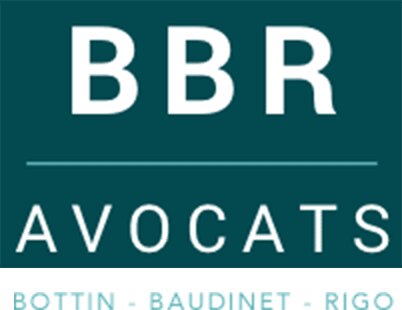Best Bail Bond Service Lawyers in Liège
Share your needs with us, get contacted by law firms.
Free. Takes 2 min.
List of the best lawyers in Liège, Belgium
About Bail Bond Service Law in Liège, Belgium
Bail bond services play a crucial role in the Belgian criminal justice system, including in the city of Liège. When an individual is arrested, they may be detained while awaiting trial, or released under certain conditions. In some cases, the court may set bail (known as "caution" in French) as a financial guarantee to ensure the accused appears at subsequent court hearings. The bail is typically paid directly to the court or designated authorities, rather than through commercial bail bond agents as is common in some other countries. Bail bond services in Liège generally involve legal assistance to navigate the bail process, advice on complying with court conditions, and representation in court for bail hearings.
Why You May Need a Lawyer
Navigating the bail bond process in Liège can be complex, and having the support of a qualified lawyer can make a significant difference. Common situations where you might require legal help include:
- Understanding your rights and obligations when bail is set.
- Representing you at a bail hearing to argue for your release or a reduction in bail amount.
- Helping to negotiate conditions of bail, such as travel restrictions or regular police reporting.
- Advising family members or friends who wish to post bail on your behalf.
- Ensuring that the bail money is returned after the case concludes.
- Challenging any refusal of bail or unfavorable conditions imposed by the court.
Local Laws Overview
Bail and provisional release in Liège operate within the framework of Belgian criminal law. Here are some key points relevant to local laws:
- The decision to grant bail or release is at the discretion of the investigating judge or the court, based on several factors including risk of flight, danger to public safety, and likelihood of tampering with evidence or witnesses.
- Court-ordered bail amounts are deposited directly to the court, and there is no commercial bail bond industry as seen in other jurisdictions.
- Conditions may be attached to any release on bail, and violation of these conditions can result in re-arrest or forfeiture of the bail amount.
- Legal provisions for bail and provisional release are found in the Belgian Code of Criminal Procedure.
- Bail can be requested at various stages - upon initial arrest, during investigation, or even after a conviction while awaiting appeal.
- For non-Belgian residents, the court may set additional guarantees or higher bail amounts due to perceived higher flight risk.
- Bail money is typically returned upon case disposition, unless the accused fails to comply with the terms of release.
Frequently Asked Questions
What is bail in Liège, Belgium?
Bail is a financial deposit or guarantee set by the court to ensure the presence of a defendant at future court appearances. Its purpose is to allow provisional release from custody under certain conditions.
Can I use a commercial bail bondsman in Liège?
No, Belgium does not recognize commercial bail bond agents as seen in some other countries. All bail payments must be made directly to the court or state authorities.
How is the bail amount determined?
The judge considers factors such as flight risk, seriousness of the offense, criminal history, and personal circumstances when setting bail. Sometimes, the court opts for non-monetary conditions for release instead.
Who can pay the bail amount?
The defendant, family, friends, or third parties can provide the bail funds. The process is overseen by the court to ensure transparency and legality.
Will the bail be returned?
Yes, the bail is returned after the case concludes, provided the accused complies with all court orders and appearances. Administrative fees or fines may be deducted in some cases.
What happens if I cannot pay bail?
If you cannot pay bail, you may remain in custody. However, your lawyer can request a review of the conditions or argue for your release under alternative conditions.
What conditions can the court impose with bail?
Common conditions include travel bans, regular check-ins with the police, surrender of passports, and refraining from contacting victims or witnesses.
What if bail is refused?
If bail is refused, you have the right to appeal the decision to a higher court. A lawyer can advise you on the best approach for your situation.
Is bail available for all offenses?
No, bail is generally not available for the most serious crimes or when there is a high risk of flight, danger to others, or potential interference with the investigation.
Can bail conditions be changed after release?
Yes, you or your lawyer can apply to the court to modify or review bail conditions if your circumstances change or if conditions are too restrictive.
Additional Resources
People seeking advice or more information about bail bond services in Liège may find the following resources useful:
- Palais de Justice de Liège - The local courthouse handles bail hearings and related legal matters.
- Ordre des Avocats du Barreau de Liège - The Liège Bar Association can help you find a qualified criminal defense lawyer.
- Service Public Fédéral Justice - The Federal Public Justice Service provides legal information about criminal proceedings and rights of the accused.
- Legal Aid Services - Free or low-cost legal advice may be available to those who qualify for financial assistance.
Next Steps
If you or someone you know needs legal assistance with bail bond matters in Liège:
- Contact a criminal defense lawyer immediately to discuss your rights and options.
- Gather all relevant documents, such as arrest warrants or previous court orders.
- Attend all scheduled court dates and comply fully with any imposed bail conditions.
- If you are unsure how to find a lawyer, reach out to the Liège Bar Association for a referral.
- Consider applying for legal aid if you are concerned about legal fees.
Lawzana helps you find the best lawyers and law firms in Liège through a curated and pre-screened list of qualified legal professionals. Our platform offers rankings and detailed profiles of attorneys and law firms, allowing you to compare based on practice areas, including Bail Bond Service, experience, and client feedback.
Each profile includes a description of the firm's areas of practice, client reviews, team members and partners, year of establishment, spoken languages, office locations, contact information, social media presence, and any published articles or resources. Most firms on our platform speak English and are experienced in both local and international legal matters.
Get a quote from top-rated law firms in Liège, Belgium — quickly, securely, and without unnecessary hassle.
Disclaimer:
The information provided on this page is for general informational purposes only and does not constitute legal advice. While we strive to ensure the accuracy and relevance of the content, legal information may change over time, and interpretations of the law can vary. You should always consult with a qualified legal professional for advice specific to your situation.
We disclaim all liability for actions taken or not taken based on the content of this page. If you believe any information is incorrect or outdated, please contact us, and we will review and update it where appropriate.













